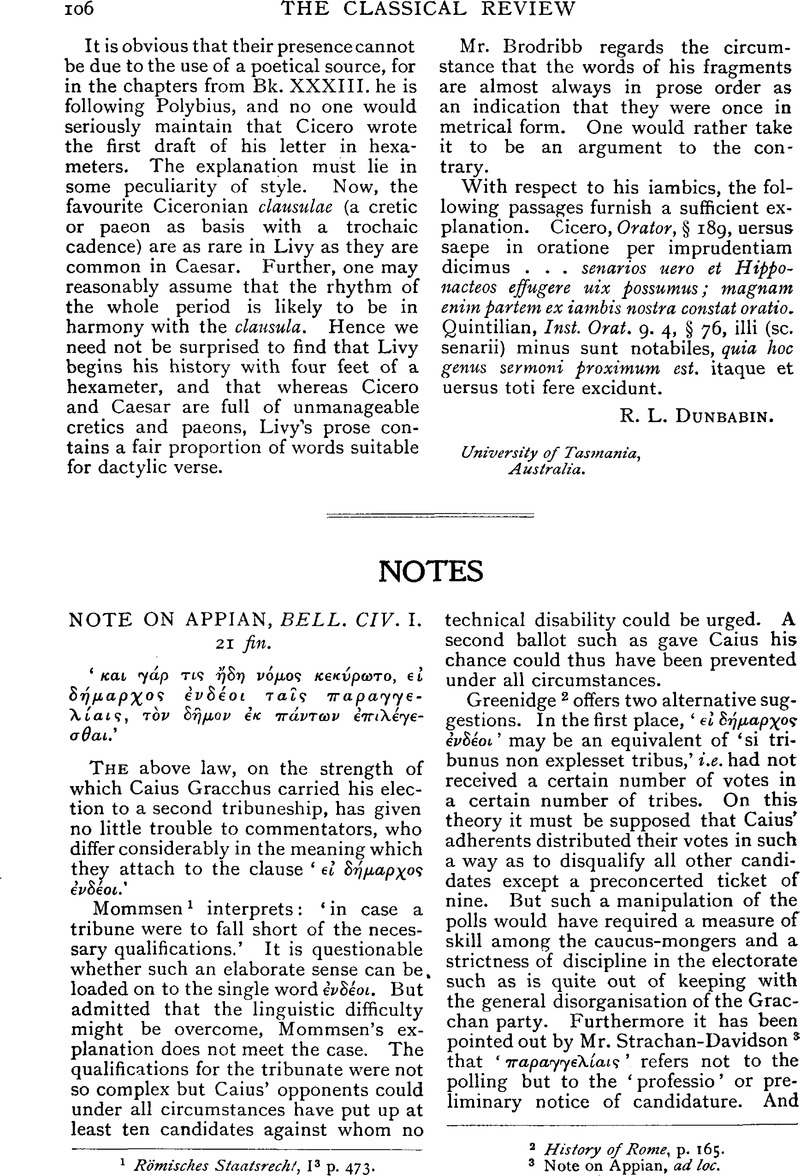No CrossRef data available.
Article contents
Notes
Published online by Cambridge University Press: 27 October 2009
Abstract

- Type
- Notes
- Information
- Copyright
- Copyright © The Classical Association 1911
References
page 106 note 1 Römisches Staatsrecht, I3 p. 473.
page 106 note 2 History of Rome, p. 165.
page 106 note 3 Note on Appian, ad loc.
page 107 note 1 Mommsen, , Römisches Staatsrecht, I3 p. 472.Google Scholar The case of the consul L. Volcatius Tullus, who refused Catiline's ‘professio’ for the consulship in 66 B.C. (Asconius, § 80), is a good instance of the exercise of this right.
page 107 note 2 Edd. Baiter-Orelli (1859); Ritter (1863); Haase (1S65); Jacob (1877); Nipperdey (1892); Joh. Müller (1903); Furneaux-Fisher (1907).
page 107 note 3 Hellanicus, fr. 109; Scylax, Periplus, § 76; Strabo, pp. 495–7; Arrian, Periplus Ponti Euxini, § 15; Anonymus, Peripl. Pont. Eux. § 42.
page 108 note 1 Bk. 68, ch. 19.
page 108 note 2 Strabo, p. 496.
page 108 note 3 Lehmann-Haupt, Armenien einst und jetzt.
page 108 note 4 Pliny (vi. 4. 12) gives the form Heniochi. This is probably a mere transliteration of the Greek, and is not based on any direct knowledge of the native form.




